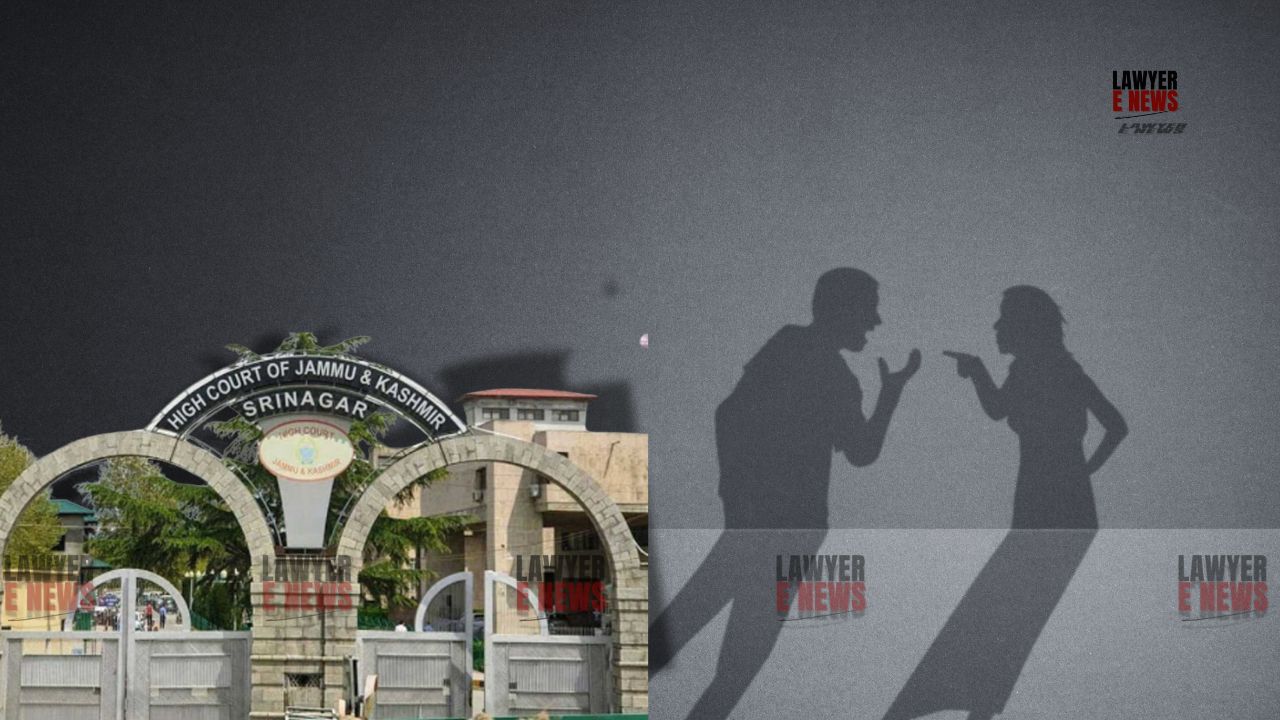-
by Admin
15 February 2026 5:01 PM



The High Court of Jammu & Kashmir and Ladakh has granted bail to Sameer Ahmad Padder, accused under Section 376 IPC. The judgment, delivered by Justice Sanjay Dhar, underscores the significance of relationship dynamics and the prosecutrix’s consent in the context of the case. The court’s decision considers the merits of the evidence and the conduct of the prosecutrix, casting doubts on the allegations of rape based on a false promise of marriage.
The case originated on April 20, 2023, when the prosecutrix, aged 26, filed a report alleging that she was sexually assaulted by the petitioner, Sameer Ahmad Padder, on the false promise of marriage. The prosecutrix detailed a relationship spanning over a year and a half, during which the petitioner purportedly promised marriage but later reneged. The prosecutrix claimed that the petitioner, who worked as a courier delivery boy and lived in her neighborhood, committed rape on multiple occasions from July 2022 to January 2023. The accusations led to FIR No. 25/2023 being registered at Police Station Qaimoh, and the petitioner was subsequently detained.
The court examined the prosecutrix’s statement recorded under Section 164 of Cr. P. C., noting her ongoing relationship with the petitioner. It was revealed that the prosecutrix, a 30-year-old woman, had voluntarily engaged in the relationship despite being aware of the consequences. The court highlighted the prosecutrix’s conduct, particularly her decision to resume the relationship even after the petitioner initially refused marriage. This conduct, the court observed, casts doubt on her claims that the sexual intercourse occurred solely due to a false promise of marriage.
Justice Sanjay Dhar cited the principles governing the grant of bail, emphasizing the need to consider the nature and gravity of the accusation, the role and status of the accused, and the likelihood of the accused tampering with evidence or fleeing justice. The court also took into account the petitioner’s age (20 years) and the prosecutrix’s maturity, questioning the feasibility of the prosecutrix being misled by the petitioner’s promises.
Justice Sanjay Dhar remarked, “Prima facie, this conduct of the prosecutrix casts a serious doubt upon her claim that the petitioner committed sexual intercourse with her on the basis of a false promise of marriage.” He further stated, “Her consent to sexual intercourse with the petitioner, who is a young boy, was not in consequence of a misconception of fact arising from his promise.”
The court’s decision to grant bail to Sameer Ahmad Padder emphasizes the importance of evaluating the credibility of the prosecutrix’s claims and the dynamics of their relationship. The judgment highlights the necessity of a nuanced understanding of consent and relationship contexts in sexual assault cases. While the bail does not imply the petitioner’s innocence, it underscores the judiciary’s role in ensuring a fair assessment of evidence and circumstances. The case continues to be under trial, with the court setting stringent conditions for the petitioner’s bail to ensure justice and due process.
Date of Decision: August 2, 2024
Sameer Ahmad Padder v. UT of J&K
